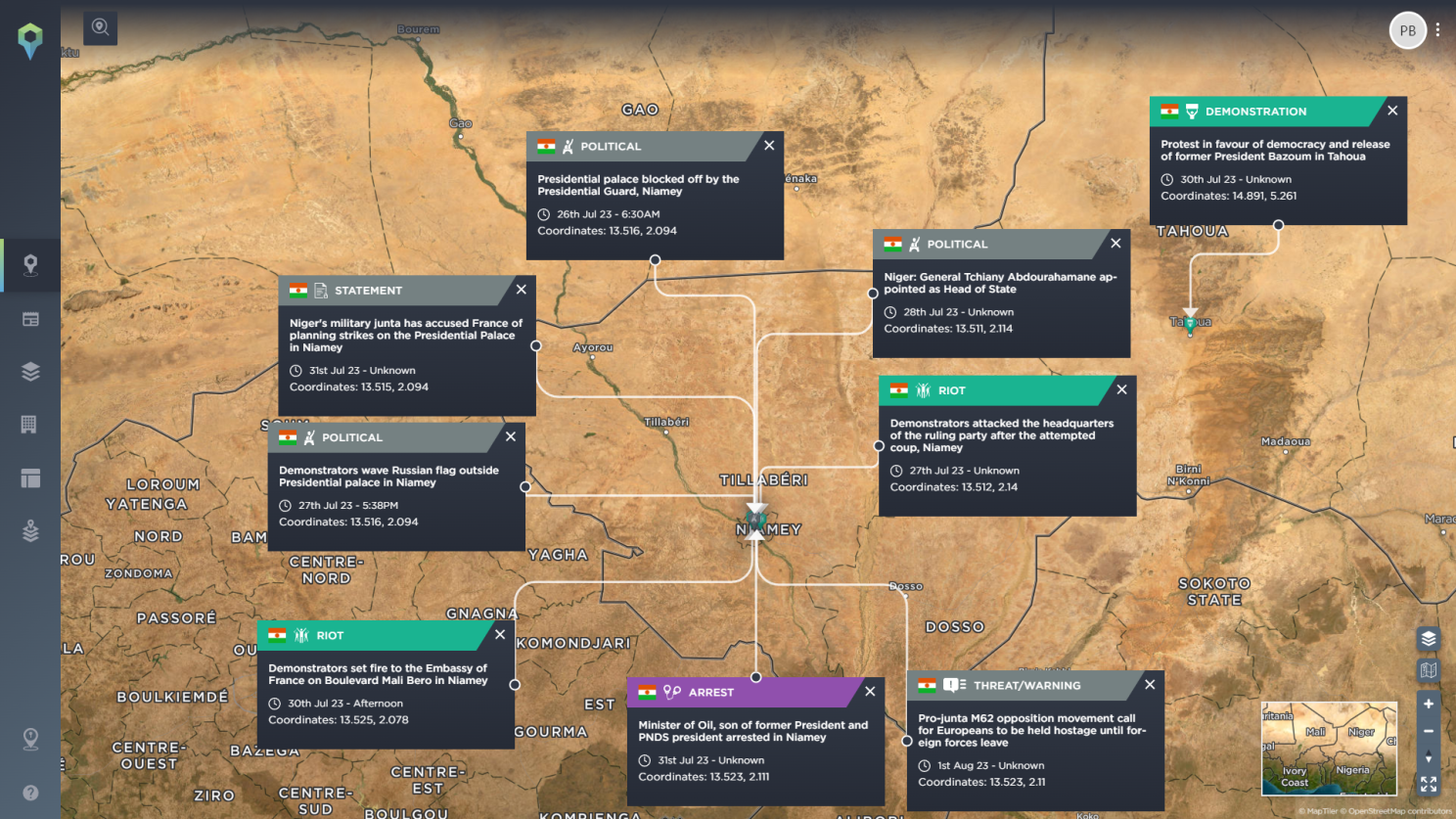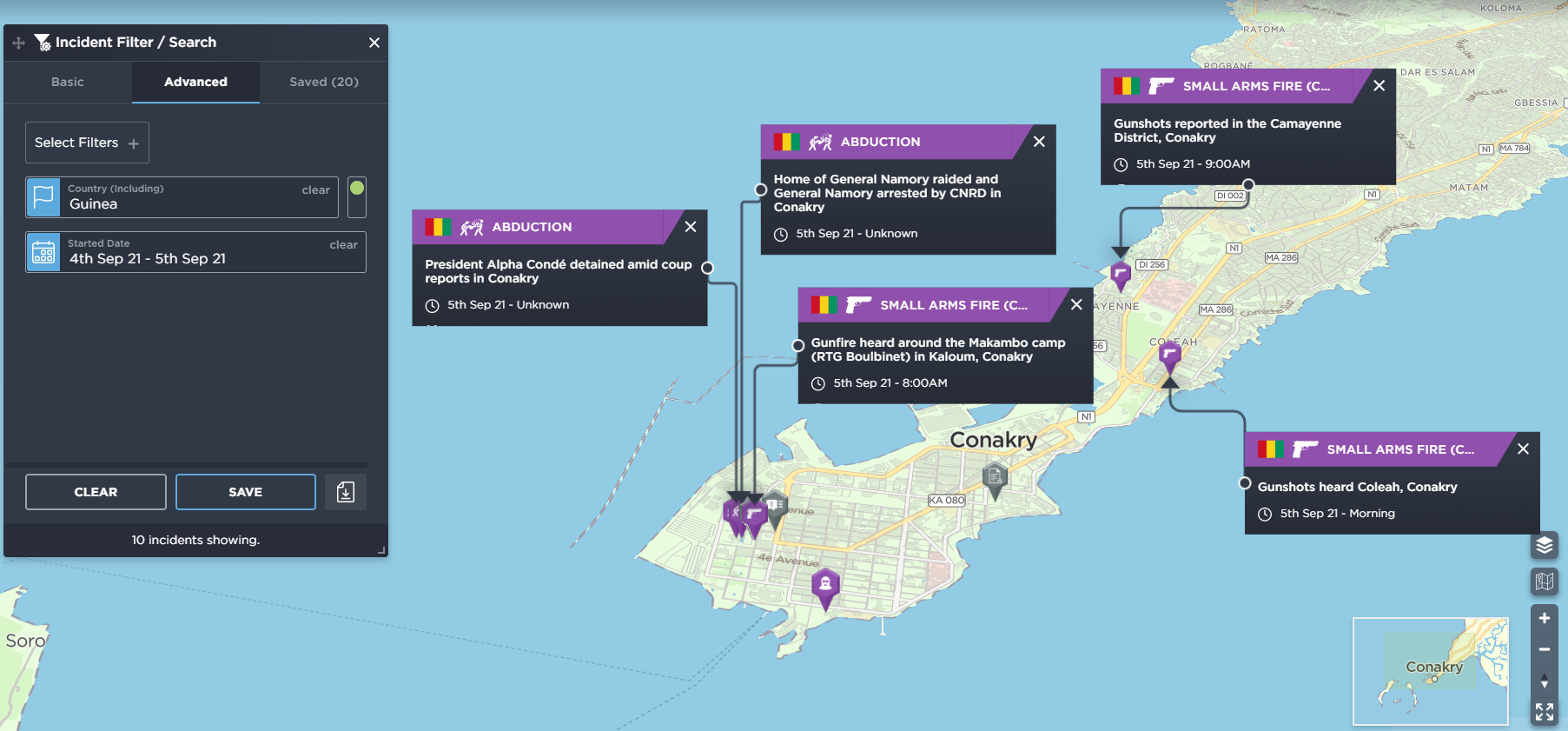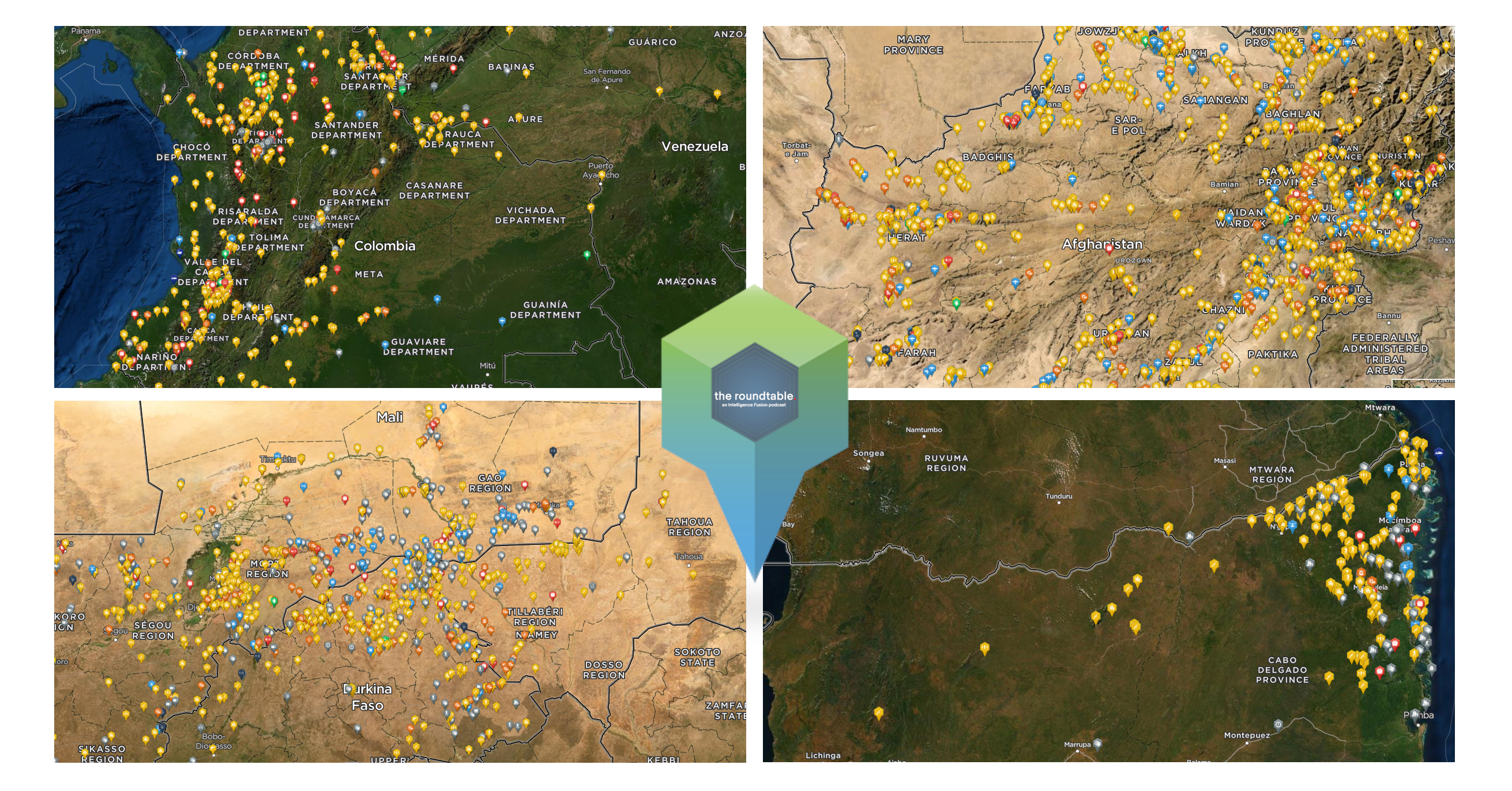ECOWAS response to the Coup in Niger: How likely is conflict in West Africa?
As ECOWAS refuses to rule out military intervention to restore civilian rule, how likely is conflict following the coup in Niger?
On 26th July 2023, President Mohamed Bazoum, along with his family, was arrested by members of the Presidential Guard in a coup d’etat in Niger. Following the arrests, senior officials from different branches within the defence and security forces formed a junta, titled the National Council for the Safeguard of the Fatherland (CNSP). To avoid conflict between the two forces, the Nigerien Armed Forces joined the CNSP on 27th July 2023, with General Abdourrahmane Tchiani declaring himself as head of state a day later, on 28th July 2023. Tchiani claims that the coup was driven by poor economic and social governance within the country, along with the ongoing deterioration of security. Jihadist insurgent groups, linked to Al-Qaeda and Islamic State, have a presence in Niger’s border region with Mali and Burkina Faso in the west of the country, as well as in its borders with Nigeria and Chad in the south–east.

Incidents related to the coup in Niger [image source: Intelligence Fusion]
Some protests against the coup were reported in the immediate aftermath of the seizure of power, however large scale marches in support of the coup have also taken place in Niamey, the capital. The coup has been internationally condemned by different stakeholders including; the European Union, African Union, United States, France, and Economic Community of West African States (ECOWAS).
What is ECOWAS?
The main purpose of ECOWAS (also known as the bloc), is to encourage economic cooperation between its various member states, whilst also providing security against possible and ongoing conflicts within the region. The community consists of 15-member states; Benin, Burkina Faso, Cabo Verde, Cote d’Ivoire, The Gambia, Ghana, Guinea, Guinea-Bissau, Liberia, Mali, Niger, Nigeria, Senegal, Sierra Leone, and Togo. As a bloc, ECOWAS has condemned the coup, implemented sanctions and refused to rule out military intervention. However, there are divides within the bloc, with military-ruled Guinea, Mali and Burkina Faso siding with the putschists in Niger, the latter two juntas pledging military support to the coup leaders in the event of military intervention from ECOWAS. Those opposed to the coup have also been divided on the threatened use of force to restore democracy.
What was ECOWAS response to the coup in Niger?
As mentioned above, since the coup d’etat, the bloc has demanded the restoration of democracy and the reinstatement of President Bazoum, as well as seeking assurances for the ousted leader’s safety, and has made public statements that it would not rule out the use of force. However, a diplomatic approach is, for a number of reasons, highly preferable for ECOWAS.
A meeting was held by the bloc on 30th July 2023 to discuss an approach that would not require military intervention. A delegation of ECOWAS officials then arrived in Niamey on 2nd August 2023, however, the visit was unsuccessful as the junta leader prohibited the delegation from leaving the airport. The junta was then given a seven-day ultimatum in which President Bazoum was to be released and reinstated. Following the junta’s failure to meet the deadline, an emergency summit was held on 10th August 2023 in Abuja, Nigeria. During this summit, the bloc discussed a possible plan to restore democracy to Niger. The bloc has stated that sanctions will be implemented if this fails, and that military intervention is possible as a last resort.
ECOWAS aims to restore diplomacy through peaceful means, i.e., sanctions and delegations, and the West African Economic and Monetary Union and other member states implemented immediate sanctions following the coup, including economic sanctions which froze Nigerien state assets, cutting off financial aid and electrical supply. With the ongoing electricity crisis and the inflated cost of living, there is a likelihood that those affected may eventually begin to oppose the coup, increasing the likelihood of violent protests, looting, and supply chain issues; such as roads being blocked and vehicle arson.
The junta are likely to seek to push an anti-French narrative to encourage support for the coup; the junta has accused France of wanting to launch a military intervention within the country and has tapped into anti-colonial sentiment to justify its intervention. Within Niger there is a growing pro-Russia movement.
Could there be military intervention in Niger?
ECOWAS’s ability to carry out military intervention depends on several factors. The member states need to agree to deploy their forces as part of the intervention; as it stands there is already a division over the use of force. The African Union (AU) is another mitigating factor: whilst the bloc does not require permission from the AU to launch a military intervention, historically they have worked in unison. Based on this it is unlikely that ECOWAS will want to proceed without the approval of the AU.
A stand-by force has been deployed by the bloc including troops from neighbouring countries such as Nigeria, Benin, and Côte d’Ivoire. In response to the military threat, the CNSP has deployed its own troops to its borders and have vowed to act with immediate response to any act of aggression towards its rule.
Currently the bloc is facing a divide with member states Mali and Burkina Faso, both of whom have pledged solidarity to the coup, and have stated that any act of aggression towards Niger is a declaration of war. Further divides are reported between members that condemn the coup but oppose the use of force. Nigeria’s army will be on the front line during any military conflict, causing concerns for Nigerian President Tinubu who encourages a political and diplomatic approach to resolve the political impasse that the region is currently facing. Citizens in Nigeria have protested the use of military intervention, and Senegal has warned against the risk of military intervention stating that this may be “one of the deadliest wars in the sub-region”.
ECOWAS is currently preparing for an alliance between the juntas of the three states. No plan has been announced as of 21st August 2023, and ECOWAS has stated that any military intervention will be discussed privately to limit the chances of retaliation. A meeting between the Defence Chiefs took place in Accra, Ghana on 17th and 18th August 2023, where the bloc reiterated that it would be ready to intervene if necessary. Although significant, the long-term outcome of the meeting is challenging to predict given the ongoing increasing tensions. Based off prior statements it is likely that ECOWAS will look to continue to prioritise the implementation of sanctions and attempt to follow a diplomatic approach with delegations approaching the junta.
What happens next?
On 19th August, a delegation from ECOWAS met with the CNSP in Niamey as part of negotiations with the ruling junta. These talks were followed by a meeting with ousted President Bazoum.
The CNSP has since pledged to hand over power in three years, following talks with ECOWAS mediators in Niamey, however how satisfactory this will be to the bloc remains to be seen given their demand for an immediate restoration of civilian rule. In a televised address following the talks, junta leader Tchiani said neither coup leaders nor “the Nigerien people want war and remain open to dialogue,” but reiterated Niger’s readiness to defend itself from any potential military intervention. Mali and Burkina Faso have sent warplanes to Niamey. ECOWAS, meanwhile, has threatened ‘grave consequences’ if Bazoum’s health is allowed to deteriorate.
The outcome of the meeting between the CNSP and ECOWAS will have crucial implications on what is likely to happen next. There are external and internal factors that must be considered when implementing actions. Internally, as it stands there have been pro-junta demonstrations within Niger, however with the increasing food and petrol prices there is potential for this to change, with a growing opposition to the junta. Externally, the country is facing pressure from both regional and Western countries to release Bazoum. There are also beliefs among some in West Africa that ECOWAS is acting as a subcontractor for Western forces, due to the strong anti-French and anti-colonial sentiment within the region. This may lead to further divides within the region and the bloc.
Due to them being the most influential country within ECOWAS, it is unlikely that a war will occur if Nigeria does not support military intervention. The human impact that war would have will be a large deterrent for Nigeria’s participation in armed conflict. Nigeria shares a large border with Niger meaning that they would likely experience a large influx of refugees, which is not economically viable or sustainable. Chad and Algeria have also both ruled out their involvement in any military intervention.
Furthermore, due to Nigeria facing their own insurgencies in the North, if a war was to occur, it is possible that these groups may use it to take advantage and advance their own attacks. By other junta states siding with the CNSP, is it possible that this may lead to a wider spread conflict zone, with conflicts breaking out in neighbouring countries, furthering the unfolding humanitarian crisis. A final consideration must be made to whether the junta sign a contract with Wagner which would likely have greater implications and alter the narrative of the ongoing coup.

Nigeria’s ongoing insurgencies in the North [image source: Intelligence Fusion]
The coming weeks will likely be significant for the coup, with the increased threat of secondary protests. The outcomes of both the meetings between member states and with the Nigerien junta will likely allow further insight into actionable measures to deter further violence in Niger. Armed conflict is not desirable for either party. The divide between regional powers is not helpful to efforts to combat terrorism in the region, and prolonged direct military conflict between states will likely only add to the problems faced by a region already experiencing high levels of instability, displacement and violence. It is therefore likely that the ECOWAS will continue to prioritise a diplomatic solution, however, this could be opposed if violence escalates or President Bazoum’s health or safety is compromised.
We will continue to monitor the situation between ECOWAS and Niger as part of our 24/7 operations and intelligence gathering. If you or your security and operations team are affected by or need to track the fallout in Niger or the wider region, the best way to do so is by accessing our threat intelligence platform, which we’ve used to support our analysis in this piece. Taking a tailored approach to intelligence gathering, the platform is trusted by security teams across the globe, meeting highly complex needs in a highly visual, easy to use way. If you’d like to find out more about how it works, and discuss how it can assist with your organisation, book some time with a member of the team here, or by filling out the form below.


![The image shows demonstrations that may impact businesses, assets and people [image source: Intelligence Fusion].](https://www.intelligencefusion.co.uk/wp-content/uploads/2023/03/image4.png)
